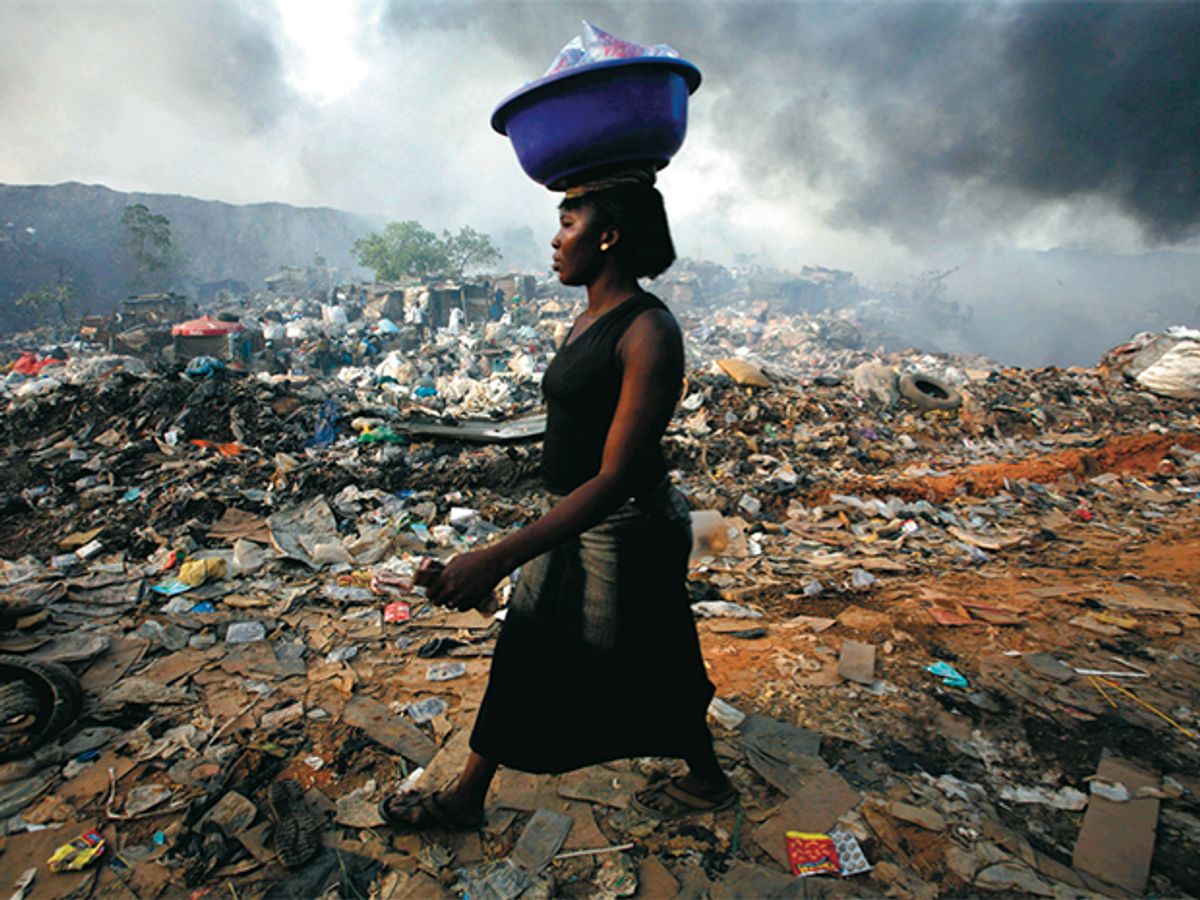How Not to Make a Megacity
Some cities are littered with garbage. Lagos is littered with corpses

A young man lies dead on a strip of gravel near a bus stop. Two men grip his limp arms and drag his body toward the bushes. Maybe he fell out of an overpacked van—or danfo—a mode of travel that passes for public transportation here in Lagos, Nigeria’s fast-growing commercial capital and home to an estimated 15 million people. Or maybe he just stepped too far out onto the darkened road lined with street lamps that do not work.
Wrecked cars, burned-out vans, and the occasional corpse greet visitors driving along the highway from the Lagos Murtala Muhammed International Airport to one of the four islands—Lagos, Iddo, Ikoyi, and Victoria—that make up the frenetic core of this port city, a former slave-trading hub. Here enterprising street merchants ply the city’s infamous “go slows”—traffic jams that can last for hours—hawking cellphone calling cards, candy, plastic bags of potable (maybe) water, and T-shirts. Three-kilometer trips between islands or to the mainland can take 2 hours, or much more if you foolishly decide not to bribe the police who demand baksheesh from everyone trying to pass through their intersection.
Add in another couple of hours of travel time if it is monsoon season. Be prepared to bail water from the floor of your vehicle—the city’s drainage system is grossly inadequate and in disrepair. Despite Nigeria’s enormous oil wealth, tens of billions of dollars have gone missing over the years in this country—one of the world’s most corrupt—and few investments have been made in infrastructure. The streets of Lagos turn into lakes as fat drops of rain mercilessly pound down on the traffic. When the downpours abate, the massive puddles become breeding grounds for mosquitoes and malaria.
So when traveling in Lagos, sit back and relax. Feast your eyes on the mounds of garbage lining the roads; on the market stands where freshly slaughtered goat carcasses steam in the sun, obscured by clouds of flies gorging on warm blood; or on the endless slums whose rusty corrugated metal roofs shelter the vast majority of citizens, many of whom subsist on less than US $1 per day and who have no access to clean water or sanitation, let alone health care or education.
Once you get where you’re going, chances are 50–50 that the power will be out and that there will be no air-conditioning to give respite from the sweltering tropical heat, which afflicts this city every day of the year. Where it exists, the electric grid is unreliable at best: the national electric utility, the Power Holding Company of Nigeria (PHCN), is the punch line to a bad joke everyone is sick of hearing. Expensive, dirty, and loud diesel generators supply the power needs of those who can afford them, adding to the pall of smog, which produces the spectacular sunsets that precede the impenetrable darkness of this failed city.
To see all of Spectrum’s special report on The Megacity, including online extras and audio and video exclusives, go to /moremegacity.